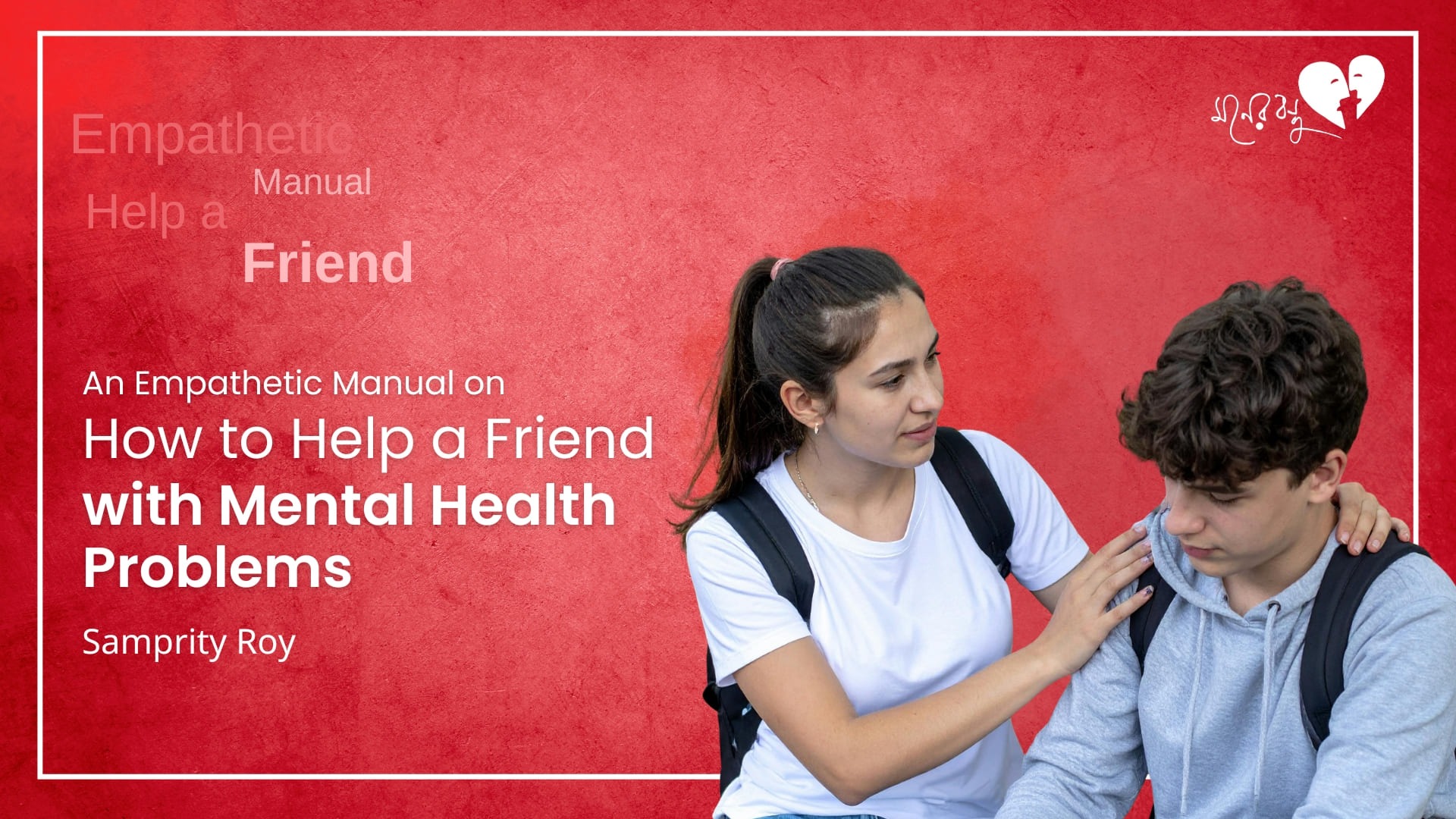
Samprity Roy
When someone you love is struggling with their mental health, it can feel confusing and even overwhelming. You might not know what to say—or fear that you’ll say or do the wrong thing. But your support can still be incredibly valuable, even if you don’t have all the answers.
Here’s how to support a loved one through emotional and mental health challenges:
1. Start by Listening—Really Listening
Sometimes, what people need most is someone who will simply listen. Avoid the urge to fix things or offer unsolicited advice. Instead, create a safe environment that allows your friend to express their feelings.
• Adopt an open body posture: face them, maintain soft eye contact.
• You can say things like, “You can tell me anything,” or “Take your time, I’m here to listen.”
• Avoid brushing them off with phrases like “It’s not that bad” or “Just cheer up.”
Remember, you don’t have to solve their problems—you just need to validate their experience.

2. Educate Yourself About Mental Health
You’ll be better equipped to respond with compassion and patience when you understand what your loved one may be going through. Mental health conditions such as depression, anxiety, bipolar disorder, PTSD, and others can be complex.
• Read from trusted mental health organizations.
• Ask your loved one if they’re comfortable sharing what they’re experiencing.
• Respect that every individual’s experience is unique.
This understanding helps avoid confusion and reduces frustration for both of you.
3. Offer Practical Help—But Respect Boundaries
Mental health challenges can make daily tasks feel exhausting. Offer concrete, practical support:
• Accompany them to doctor or counseling appointments.
• Help with household chores like cooking, cleaning, or grocery shopping.
• Check in with a short message or call.
However, it’s important to respect their boundaries. Don’t take it personally if they decline help. Let them know you’re available when they’re ready.
4. Encourage Professional Support—Gently
While your support is invaluable, professional care plays a key role in recovery. Encourage your loved one to seek help, but avoid being forceful.
• Share information about counseling or therapy options.
• Offer to help research providers or go with them.
• Reinforce that seeking help is a sign of strength, not weakness.
5. Take Care of Yourself Too
Supporting someone with mental health issues can be emotionally taxing. It’s not only okay to take care of yourself—it’s necessary.
• Set realistic expectations about what you can provide.
• Seek support for yourself—friends, counselors, or support groups can help.
• Prioritize your own well-being and allow yourself time to rest.
When you’re supported and balanced, you’re in a better place to support others.
Mental health struggles can be deeply isolating, but your empathy and presence can make all the difference. You don’t need to have all the answers. Sometimes, the best thing you can offer is your presence, your ear, and your unwavering support.
If you’d like to go a step further, many mental health organizations provide resources, hotlines, and guides to help both you and your loved one.
ব্লগটি মনের বন্ধু এক্সপার্ট দ্বারা রিভিউয়ের পরে প্রকাশিতএই ব্লগের একমাত্র উদ্দেশ্য মানসিক স্বাস্থ্য বিষয়ক সচেতনতা বৃদ্ধি করা। পাঠকের বোঝার সুবিধার্থে এতে কিছু প্রতীকি ঘটনা ব্যবহার করা হয়েছে।
এই ব্লগ বা এর কোনো অংশ পড়ে কেউ আঘাতপ্রাপ্ত হলে তার জন্য লেখক ও ‘মনের বন্ধু’ দায়ী নয়। মনের ওপর চাপ অনুভব করলে বা মানসিকভাবে ট্রিগার্ড অনুভব করলে দ্রুত মনের বন্ধু বা যেকোনো মানসিক স্বাস্থ্যবিদের সাথে যোগাযোগ করুন।
মনের বন্ধুতে কাউন্সেলিং নিতে যোগাযোগ করুন: ০১৭৭৬৬৩২৩৪৪।
📍: ৮ম ও ৯ম তলা, ২/১৬, ব্লক-বি, লালমাটিয়া, ঢাকা

Mental stress is our emotional and psychological response when we feel overwhelmed, pressured, or threatened by challenging situations.

আমরা অনেক সময় সামনে থাকা মানুষটির কথা থামিয়ে দিয়ে, তাকে গুরুত্ব না দিয়ে নিজের অভিজ্ঞতার কথা বলতে ব্যস্ত হয়ে যাই। এ অভ্যাসটিও একজন সহমর্মী শ্রোতা হবার পথে বাধা।

Though the era has moved on, the society of our country is still dark. I am saying this because almost all families in our country think “What is mental health again? What is depression?

In the bustling streets of Bangladesh, amidst the vibrant culture and rich traditions, lies a silent struggle that often goes unnoticed—the mental health challenges faced by Bangladeshi men. While the